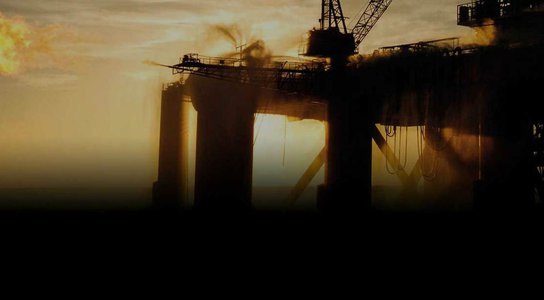Do investors in publicly-listed British oil, gas and mining companies really have enough information about what they get up to? This was the question posed in‘Kazakhstan: A Poisoned Legacy’, a new documentary that aired recentlyon Al Jazeera English. It goes to the heart of Global Witness’ campaigning on corporate transparency.
The documentary raised disturbing questions about the involvement of Kazakhmys plc – a UK-listed FTSE-250 company – in a highly polluting lead smelter in Shymkent, Kazakhstan. Kazakhmys’ involvement in the smelter dates from October 2010 to mid-2012, and the company’s then-chairman, Vladimir Kim, stated that Kazakhmys’ only involvement in the Shymkent smelter was in supplying lead dust. Yet this contradicts other statements made by high-ranking officials – for example, the Kazakh Minister of Industry said that the company responsible for the smelter – a Kazakh company called “A-Mega Trading” – was a subsidiary of Kazakhmys.
Ascertaining who controls the smelter is vital in establishing who is responsible for its activities. If Kazakhmys had some form of control over the polluting plant, this would raise a further question about whether the company is liable for any pollution, whether this potential liability has been disclosed, and whether the company had provided sufficient information for investors to make informed decisions. Kazakhmys has not mentioned the smelter in its recent Annual Reports, or included any assets and liabilities related to the plant on the company balance sheet because Kazakhmys says it does not own it.
The fact that the company refuses to engage in a proper discussion of these issues, simply issuing a feeble six line response to Global Witness – available here – shows that Kazakhmys plc is unwilling to engage not only with shareholders (Global Witness holds a share in Kazakhmys plc), but with the wider general public on matters that are in the public interest.
This is not the first time that Global Witness has raised such questions. In 2010, our report Risky Business highlighted many issues over the company’s cozy links to the Kazakh president, Nursultan Nazarbayev (in 2006, the company paid for his Lanesborough hotel bill — £30,600 – while he was in the UK on an official visit).
And our recent work on corruption allegations surrounding another Kazakh-based copper miner, ENRC, has demonstrated the need for listing authorities to perform more thorough checks on extractive companies in order to protect investors. It’s an issue that the UK parliament is keeping an eye on – with Global Witness penning asubmission to a recent BIS Select Committee inquiry on the Extractive Industries examining the need for more disclosure.
The mysterious story of the ownership of the smelter shows the need for companies to disclose their ‘ultimate beneficial owners’ in order to make clear who really owns and profits from them. The UK has recently committed to a new public registry of the real owners of all companies registered there. Countries such as Kazakhstan should follow suit to avoid the kind of opacity over companies that own potentially lucrative or harmful assets. As a member of the EITI, Kazakhstan should require extractive companies to disclosure their beneficial owners.
In the meantime, given the conflicting information about the smelter and Kazakhmys plc’s reluctance to talk about it, an independent investigation by the UK’s Financial Reporting Council needs to determine whether the company’s former relationship with this filthy, harmful smelter went beyond supplying lead dust and clarify who its controllers and ultimate beneficial owners are.
Tom Mayne is a Senior Campaigner on Global Witness’ Oil team.
